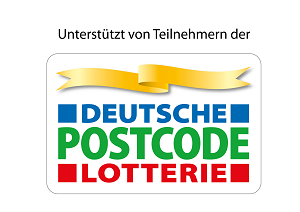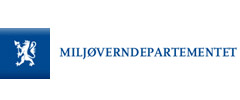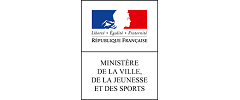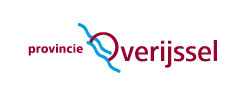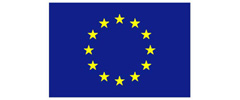Consumers need information about most hazardous chemicals in products
NGOs present REACH "SIN" (Substitute It Now) list of most hazardous chemicals which consumers should be able to avoid under European chemicals regulation REACH
16.09.2008 |WECF Press Release

picture: Anya van Lit
In order to highlight this slow progress in the implementation of REACH and to present chemicals in need of substitution, the International Chemical Secretariat (ChemSec) is launching the SIN list 1.0 (SIN=Substitute It Now) of high concern chemicals. The presentation will take place at the “Substitution Conference” on 17th of September 2008 in Brussels.

According to Sascha Gabizon, Director of Women in Europe for a Common Future (WECF), the most important part of the new European chemicals regulation “REACH”, – namely the consumer instrument - is being neglected.
BRUSSELS - One of the most important European legislations for consumers is REACH - Registration, Evaluation and Authorisation of Chemicals. Chemicals can be found as ingredients in products of everyday needs, from toys to furniture, from health care products to television sets.In June 2007, this new EU policy on chemicals, entered into force. Over the next decade thousands of chemicals manufactured or imported into the EU will have to be registered with the newly established European Chemicals Agency, ECHA,
One of the main parts of REACH is the authorisation procedure for ”substances of very high concern“ as defined in the legislation, such as those that may cause cancer or persist in our bodies for a long time. Already known hazardous substances will be collected on a so-called "candidate list“ of chemicals, and then have to be prioritized and put on the list of substances (see Annex), which needs authorisation. The aim is to ban hazardous substances, or to limit it to non-relevant use for consumers, and thus to minimise the negative effects on health and the environment.
So far only 16 of the 30,000 chemicals that fall within the scope of the new EU chemicals regulation, have been officially proposed by EU Member States to the European Chemicals Agency (ECHA) as substances of very high concern that need a special permission to be used or that should be substituted with safer alternatives.
Sonja Haider, Chemicals Coordinator of the NGO Women in Europe for a Common Future states “The success of REACH will depend on a prompt, effective process for identifying the most hazardous chemicals on the European market and replacing them with safer alternatives,but unfortunately,the authorities and the European Chemicals Agency ECHA do not take their responsibility seriously. WECF is one of the 11 NGO behind the release of the REACH SIN* list. Sonja Haider continues: “Only 16 substances have been proposed for this list, instead of thousands, which are known for their negative effects on health, this is hardly more than have already been banned internationally in the Stockholm Convention many years ago, this is unacceptable for European citizens”.
11 European environmental organisations have drawn up a scientifically based and complete alternative list of Substances of Very High Concern. This list, also called the “Substitute it Now”(SIN*) list was presentedtoday to the public in Brussels.
Sascha Gabizon, Director of WECF, says, “European consumers want to make good use of the new European Chemicals legislation REACH, but they can only do so if they have the right instrument, which is this “candidate list”. If that list has only 16 out of thousands of known dangerous chemicals, it is no longer an instrument but an impediment”
Sonja Haider adds: „ The candidate list is potentially very useful for the European consumer, for example, if Mrs. x wants to buy a baby shampoo but does not want her newborn baby to be exposed to dangerous chemicals, she has the right to ask the retailer whether one of the dangerous substances listed on the official “candidate list” is in the shampoo. By law, the retailer is obliged to answer within 45 days“.
Sascha Gabizon, Director of WECF says, “It is funny to see how certain groups are trying to re-interpret the European chemicals legislation, one way of doing so by redefining a what a product is.Consumers are allowed to receive information only if the amount of hazardous substances in the total product exceeds the limit of 0.1% of the product. For the consumer, any part of a product that he or she will have to handle should be considered a product. For example, if I buy a toy car for my child, I would want to know if the battery or the remote control contains more than 0,1% carcinogens, for example. However, now some groups say that the battery and controls are only part of the total product, and consumers may not request that information.
For more information and/or pictures, please contact:
Sascha
Gabizon, International Director WECF, + 49-1728637586
Chantal
van den Bossche, Press Officer +31-6 2812 9992,
chantal.vandenbossche @ wecf.eu
Women in Europe, +31 30 2310300, wecf@wecf.eu, www.wecf.eu
Related News
Human Biomonitoring for Europe
Vienna, 26 September: stakeholder forum
28.09.2018
WECF sends letter to Dutch Secretary of State concerning EU policy on EDCs
In a joint statement WECF and the EDC Free Coalition ask Dutch State Secretary Dijksma to insist on major changes at the Environmental Council meeting to protect our health and environment.
21.06.2016
Commission's EDC criteria proposal: More humans will have to be harmed before action is taken
The European Commission presented today its proposal for criteria to identify endocrine disrupting chemicals (EDCs). WECF and the EDCfree Coalition condemn strongly the decision.
15.06.2016
WECF film "How to protect children from EDCs" now available in Spanish
Pregnant women know it is important to avoid alcohol, nicotine and certain foods. However, what is less well known is that many everyday products contain pollutants that can also be harmful to your baby. WECF's film gives practical advice on how to avoid exposure to EDCs. It now also available in Spanish.
13.06.2016

















